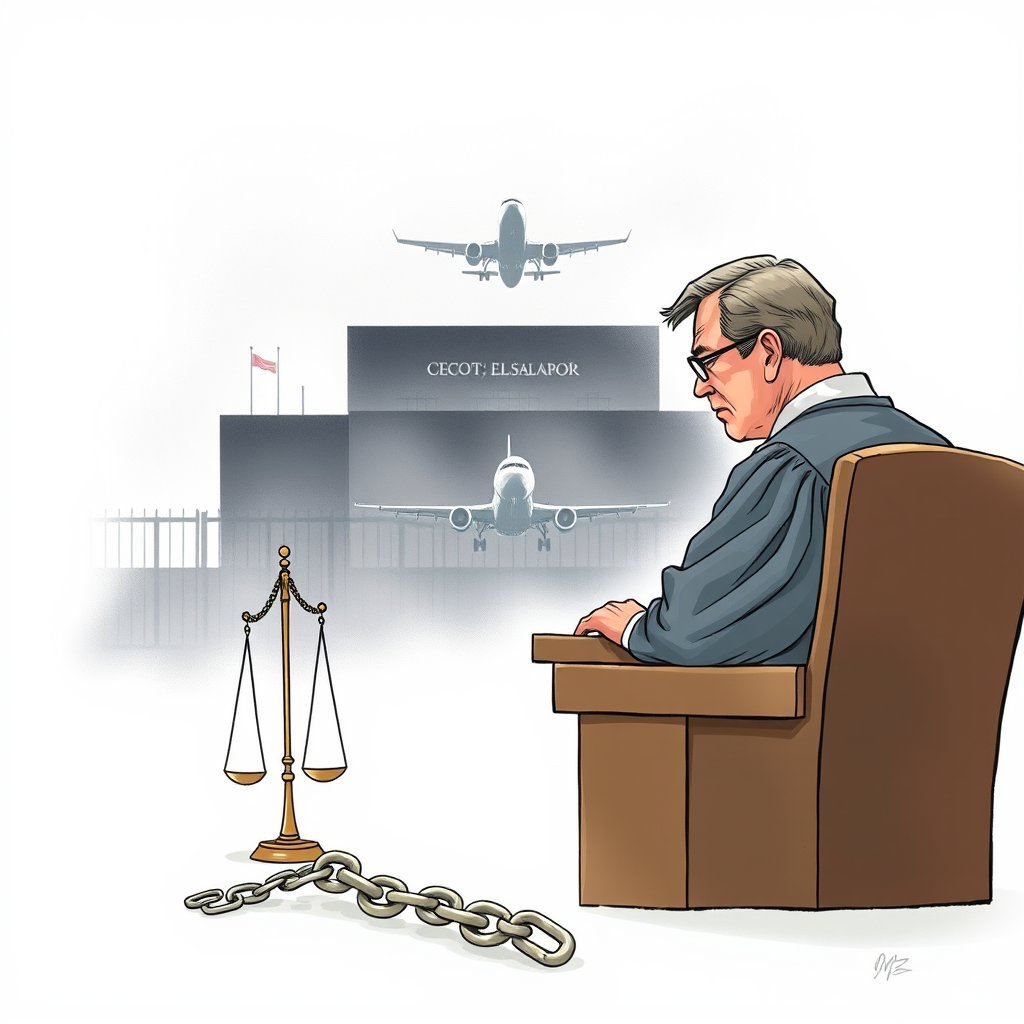Judge Threatens Jail Time for Trump Officials

A U.S. District Judge is poised to potentially hold Trump administration officials accountable for defying a court order regarding the deportation of individuals to El Salvador, a legal analyst says. Judge James Boasberg has determined there is probable cause to pursue criminal contempt charges, stemming from instances where deportees, allegedly denied due process, were transferred to the notorious CECOT megaprison.
The core of the dispute lies in deportation flights Boasberg previously ordered halted, believing those onboard hadn’t received legally mandated process. Despite this, the flights proceeded, landing in El Salvador and delivering individuals directly to CECOT. The government maintains it loses control over deportees once they arrive in the country, a claim Boasberg appears to be challenging.
According to Slate’s Mark Joseph Stern, Boasberg is essentially calling the government’s bluff. The judge has offered a path to avoid contempt: regain custody of the individuals and allow them to pursue their legal challenges. However, accepting this offer would necessitate acknowledging ongoing control over the deportees, effectively dismantling the government’s claim of lost authority.
If the Justice Department refuses to comply, Boasberg is prepared to identify and prosecute those responsible, potentially through live witness testimony. Legal analysts Lisa Rubin and Barbara McQuade note the precedent for a judge appointing independent counsel to pursue the case if the Justice Department declines. Federal marshals would be tasked with arrests, and even state police could be authorized if the Justice Department instructs them to stand down.
The situation presents a significant test of judicial authority. While the Supreme Court could intervene, Stern argues the justices should uphold Boasberg’s order to preserve the independence of the judiciary, a principle they have often seemed reluctant to defend when facing conflict with the Trump administration. Furthermore, a presidential pardon remains a possibility, potentially shielding officials from any consequences.
This case isn’t simply about a procedural oversight; it’s a direct challenge to the rule of law. The government’s insistence on its lack of control, coupled with the potential for a pardon, creates a dangerous precedent. If agencies can disregard court orders with impunity, and officials face no repercussions, the entire legal system is undermined. Boasberg’s willingness to pursue this matter, even if it means confronting the executive branch, is commendable. The Supreme Court’s response will be crucial in determining whether the judiciary can effectively serve as a check on executive power.